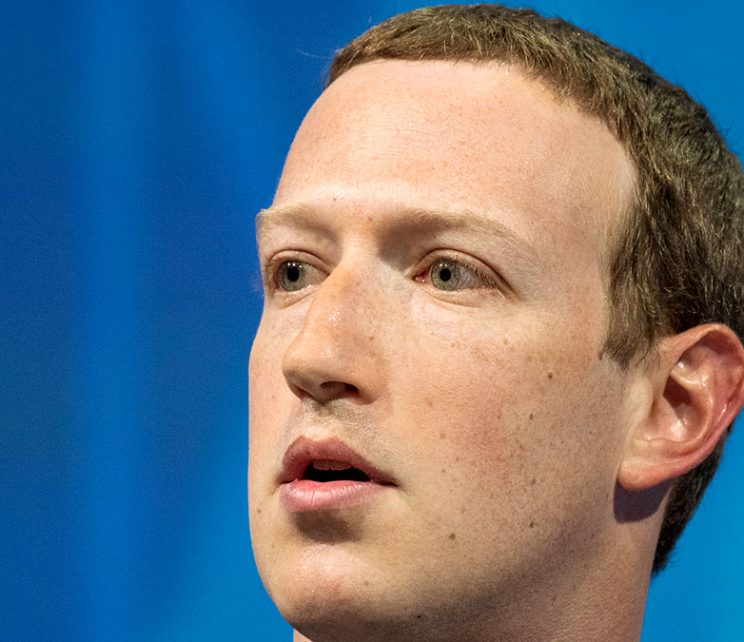
Mainstream Online Web Portal
LoginInvestors can view their accounts online via a secure web portal. After registering, you can access your account balances, periodical statements, tax statements, transaction histories and distribution statements / details.
Advisers will also have access to view their clients’ accounts online via the secure web portal.
The Point
Quick, actionable insights for investors
Global Equities

Global equities 2025 outlook: From Trump and Japan to weight loss drugs and AI
A new Trump Administration, mass restructuring of Japanese corporates, AI adoption and weight loss drugs are some of the trends that will drive global equities in 2025, says Pendal global equities PM Chris Lees.
Chris goes into detail in a new webinar which also features Pendal emerging markets fund manager Ada Chan.
“There are a lot of really exciting mid-cap stocks around the world, in many geographies, in many sectors, where earnings have come through the last few years – but share prices haven’t done much because global markets have been obsessed with the Magnificent Seven [tech stocks],” says Chris.
“Partly the better performance from mid-caps is a result of the Trump election, because the new Administration will be very business friendly.
“We are also seeing a better performance from the financials and cyclicals. I think that is sustainable.”
In the webinar (which is eligible for CPD points), Chris also discusses opportunities in Japan as well as the US and Europe, where second-generation weight loss drugs are in development.

Ten themes global equities investors should be thinking about in 2024
Quick view
Ten themes global equities investors should be thinking about in 2024
There are ten major themes driving global equities investing right now, according to Pendal portfolio manager Chris Lees.
In his latest quarterly video, Chris briefly outlines each theme and how he and Pendal Global Select Fund co-manager Nudgem Richyal aim to take advantage.
Chris and Nudgem remain enthusiastic about biotech, buying a mid-cap stock with positive new drug results in the anti-obesity space.
But he also warns investors to be aware of anti-obesity losers among snacking stocks and consumer staples.
“It’s also becoming bad news for the healthcare sector. So we would expect the healthcare sector to deteriorate to red lights as well.”
Chris sees a tech-driven bull market continuing to broaden away from mega caps into midcaps.
“The technology sector’s got positive fundamentals and positive trend, but it’s now expensive and we would expect other cyclical sectors above it to start improving.”

Vice versa: why 2024 is set to rewrite the story of 2023
Quick view
Vice versa: why 2024 is set to rewrite the story of 2023
The outperformance of America’s Magnificent Seven tech megacaps will come to a halt in 2024, paving the way for a return to market leadership for small and midcaps stocks, says Pendal’s Christopher Lees.
Big tech dominated markets in 2023, with the so-called Magnificent Seven – Amazon, Apple, Google, Meta, Microsoft, Nvidia and Tesla – collectively outperforming global equities by 73 per cent.
But as the earnings and price performance of the tech stocks begins to peak, the market baton is set to be passed back to a fast-recovering small and mid-caps sector, says Lees, who manages Pendal’s Global Select fund.
“2023 was an extraordinary year. But we expect the Magnificent Seven to start underperforming the overall index in 2024. This really could be the beginning of a new trend change – a ‘vice versa’ where small and mid-cap stocks outperform mega caps,” says Lees.

Whether it’s tech stocks or sporting teams, go for ‘franchise assets’
Quick view
Whether it’s tech stocks or sporting teams, go for ‘franchise assets’
THE record-breaking $US6 billion sale of the Washington Commanders NFL team last month is the latest in a rush of billion-dollar transactions involving trophy sporting teams.
If you can choose the right sporting “franchise” to buy, the returns are eye-watering.
Our head of global equities Ashley Pittard hasn’t bought any sporting teams recently.
But like the most successful sport transactions, Ashley focuses on what he calls “franchise assets”.
“Franchise assets – companies that are number one or two in their space or are monopoly or duopoly business – are highly valued among investors at the moment,” Ashley says, pointing to the tech leaders dominating Wall Street.
“The lesson for investors is that you want to be selective, and you want to be concentrated when investing.”
“You also want to be defensive because there are uncertainties in the world around the macro-outlook and credit.”

Global equities: Boeing, Airbus look good as tourism takes off
Quick view
Global equities: Boeing, Airbus look good as tourism takes off
If you experienced shoulder-to-shoulder tourist crowds during a recent overseas holiday, you might be wondering how to get exposure to the fast-recovering travel industry.
One way is via plane manufacturers says Pendal global equities PM Ashley Pittard.
Ashley recently attended the 2023 Paris Air Show during two months of travel, where he met company executives across Europe.
More than 1000 new plane orders were announced at the show, demonstrating the rude health of the two major manufacturers, Boeing and Airbus, says Ashley.
“Demand for planes is very, very strong,” Pittard says. “The backlog for the industry is about 8000 units which is about the next ten years of production.
“China is slowly opening up again, albeit slower than Europe. There is also a sustainability trend – airlines are getting rid of older planes and buying new, more efficient options. And there is also higher airline yields – more people are flying.”

Ashley Pittard: The most forecast recession ever has been delayed again
Quick view
Ashley Pittard: The most forecast recession ever has been delayed again
Bank of America last week became the first big Wall Street bank to reverse its recession call.
Are they right?
“Given the strong capital expenditure numbers we’re seeing in the US June-quarter earnings season, it’s going to be very hard for the US to have a recession this year,” says Ashley Pittard, who heads up Pendal’s global equities investment team.
“What you are seeing in the earnings numbers, and what you have seen the entire year, is that capital expenditure is accelerating – 15 per cent in the current quarter, year-on-year, and 14 per cent in the first quarter.”
“It’s very hard to have a recession when your capital expenditure is so high,” Ashley says.
In terms of numbers, US company earnings have beaten estimates by about four per cent, and by one per cent on sales.

Ashley Pittard: Why investors shouldn’t desert quality banks
Turmoil among global banks over the past six weeks has created opportunities for investors, with Swiss-based UBS and Wall Street giants JP Morgan and Wells Fargo the top picks, says our head of global equities Ashley Pittard.
“You want to invest in a bank that’s one or two in its market, and has high-quality management,” Ash says.
“Bank stocks can go down in a crisis environment, but the quality banks don’t go broke – that’s a key point.”
Banks should do well in coming quarters as they reprice credit and achieve higher margins, he argues.
“If we fast-forward through the year, there’s no doubt there’s going to be a recession in the US.
“The yield curve will steepen and that’s good for banks because they borrow short and lend long and they should get a wider spread.
“That should feed back in a couple of years into higher earnings.”

Ashley Pittard: Why US is set to enjoy a decade of growth
Quick view
Ashley Pittard: Why US is set to enjoy a decade of growth
Don’t worry about a US recession, says Pendal’s head of global equities Ashley Pittard.
Instead, get set for a decade of growth underpinned by a rebound in capital spending as US businesses re-build their domestic supply chains.
Capital expenditure is a critical driver of economic growth, says Ash, who manages Pendal Concentrated Global Share Fund.
The Biden government this month opened applications for US$53 billion in manufacturing subsidies under the CHIPS and Science Act, which seeks to boost semiconductor and high-tech manufacturing.
Already, US$138 billion of capital spending has been committed from companies including Intel, Samsung and Texas Instruments.
“It’s just like Warren Buffett says: never bet against America.”

US equities: Earnings are looking better than expected
Quick view
US equities: Earnings are looking better than expected
The macro-economy – inflation, growth, employment – drives top-line sentiment among investors, observes our head of global equities Ashley Pittard.
But earnings in sectors and companies drive the valuation of specific stocks, he says.
Take Facebook owner Meta, which gained 25 per cent last week after a better-than-expected result. Then the stock fell back sharply, albeit briefly, when strong US labour force hinted at further rate rises.
Overall, the latest quarterly US reporting season is looking better than expected at the halfway point, says Ashley.
Earnings growth is down about 3 per cent “which is marginally better than what was forecast”.
Ash believes it’s time to “take a little bit of money off the table” when it comes to energy stocks.

Ashley Pittard: US recession will be shallow
Quick view
Ashley Pittard: US recession will be shallow
“It’s highly, highly likely that there’s going to be a US recession this year,” says our head of global equities Ashley Pittard.
“But there’s a difference this time around because of robust capital expenditure.
“It’s clear this recession is going to be shallow. Invest through it, because valuations are compelling.
“There’s been a de-rating of the market and we are going to have earnings growth when we get out of this downturn.”
Which sectors? “Last year we were pushing the Covid losers – financials and energy – and they’ve done very well,” says Ashley.
“Going forward you still want some of those names, but also you need some of the 2022 losers.
“Names like Amazon, Netflix and other media streaming assets. You want to have Covid losers plus selective 2022 losers.”

Global equities: It’s time for ‘Covid losers’ to shine
Quick view
Global equities: It’s time for ‘Covid losers’ to shine
What can investors learn from US earnings as big-tech layoffs continue?
For equities investors, 2023 will be a story of correcting a “misallocation of capital” that occurred during the pandemic, says Pendal’s head of global equities Ashley Pittard.
“You don’t want to be in the Covid winners, you want to be in the Covid losers.
“There has been an over-investment in technology and the cloud and a misallocation away from industrials, supply chain, energy and those sorts of companies.
“You’re now seeing that misallocation of capital unwind.”
As for the big picture, a weaker US quarterly earnings season indicates a recession is likely next year, says Ash.
But there’s evidence US companies are rebuilding supply chains post-Covid, which should soften the impact as capital spending offsets slowing consumer demand.

Global Equities: How US earnings are likely to land
Quick view
Global Equities: How US earnings are likely to land
Next week we’ll start to find out how US companies fared in the September quarter – and expectations are low.
“We expect continued volatility,” says senior global equities analyst Sue Scott.
“This is partly because the market is finding it very difficult to gauge how a reversal of Covid spending is affecting operating conditions, alongside higher interest rates and inflation.”
US shares ended the quarter broadly where they started, trading at about 15 times expected earnings.
“But that’s only useful if you believe the ‘E’ in the price-to-earnings ratio,” says Sue. “That’s the big debate.
“The market is still expecting growth – both in the third quarter and in 2023.
“But the real difficulty for investors is making sense of conflicting data.
“Companies are reporting numbers that could reflect deteriorating consumer health – or it could just be a reflection of dislocation in global trade and spending patterns as a result of Covid starting to normalise.”
Loading posts...
Loading posts...














